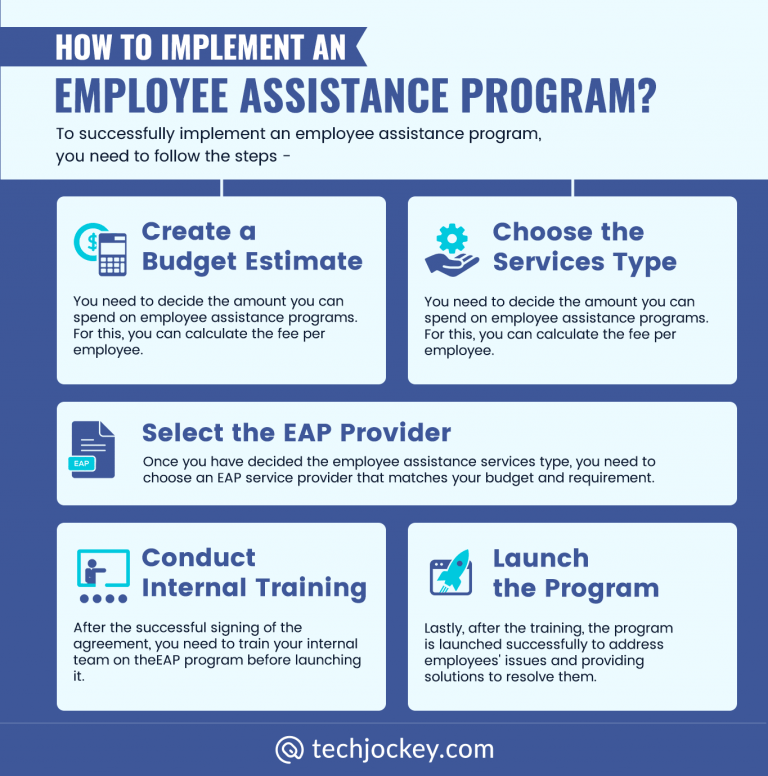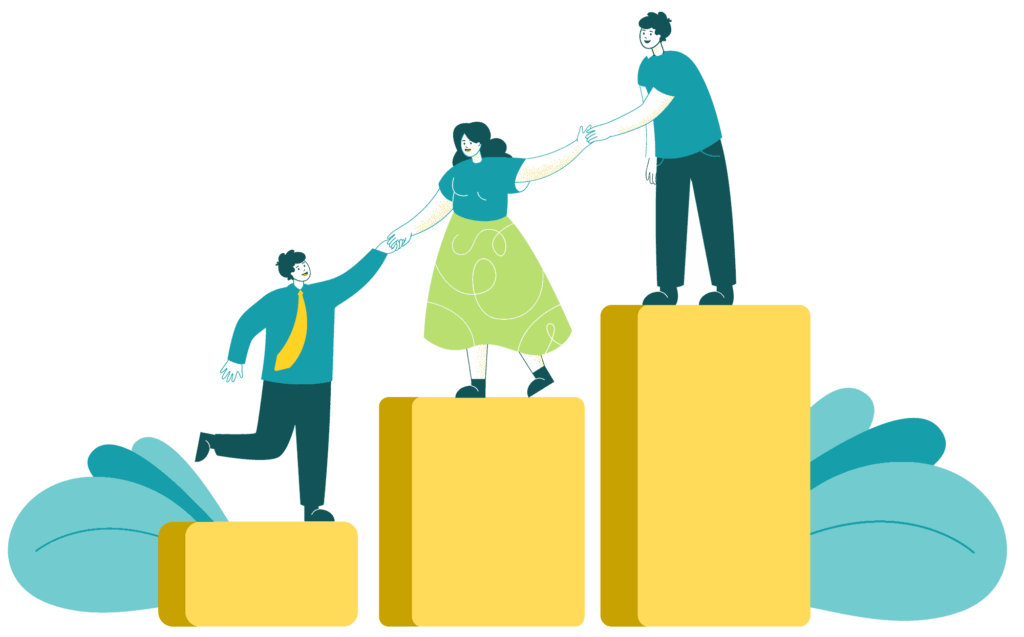
Employee Assistance Programs (EAPs): Your Confidential Lifeline for Workplace and Personal Well-being
Life can be demanding, and the pressures of work often add to our personal challenges. From financial worries and relationship issues to mental health struggles and substance abuse, employees can face a myriad of difficulties that impact their well-being, productivity, and overall happiness. But what if there was a confidential, free, and readily available resource designed to help navigate these complex issues?
Enter Employee Assistance Programs (EAPs). These powerful, yet often underutilized, benefits are designed to provide crucial support to employees and their families, ensuring they have the resources to cope with life’s ups and downs. In this comprehensive guide, we’ll explore what EAPs are, how they work, and why they are an invaluable asset for both employees and employers.
What Exactly is an Employee Assistance Program (EAP)?
At its core, an Employee Assistance Program (EAP) is a confidential, short-term counseling and referral service paid for by your employer. Think of an EAP as a special, confidential service designed to help you with a wide range of personal and work-related issues that might be affecting your well-being or job performance.
Key characteristics of an EAP:
- Employer-Sponsored: Your company provides and pays for the EAP service.
- Confidential: What you discuss with an EAP professional is kept strictly private. Your employer will not know you’ve used the service or what you discussed.
- Free for Employees: As an employee, you typically don’t pay anything out-of-pocket to use the core EAP services.
- Voluntary: You choose whether or not to use the EAP; it’s not mandatory.
- Wide Range of Support: EAPs don’t just focus on work problems. They offer help for personal, family, and financial issues, too.
How Do EAPs Work? A Simple Process
Accessing your EAP is usually a straightforward and confidential process. Here’s a general idea of how it works:
- Direct Contact: You, as an employee (or sometimes an eligible family member), directly contact the EAP provider. This contact information is usually available through your HR department, company intranet, or employee handbook.
- Initial Assessment: When you call or connect online, a trained EAP professional (often a counselor or therapist) will listen to your concerns. They will help you clarify the issue and determine the best course of action.
- Short-Term Counseling: For many common issues like stress, anxiety, or relationship problems, the EAP may offer a certain number of short-term counseling sessions (e.g., 3-8 sessions) directly through their network. These can be in-person, over the phone, or via video call.
- Referrals: If your issue requires more specialized or long-term support (e.g., ongoing therapy for a chronic condition, legal representation, or extensive financial planning), the EAP will provide referrals to qualified professionals or resources outside their immediate network. They’ll often help you find providers that are covered by your health insurance.
- Follow-Up (Optional): In some cases, the EAP may follow up to ensure you connected with the referral and are receiving the help you need.
Important Note on Confidentiality: This is often the biggest concern for employees. EAPs operate independently of your employer’s HR department. They are legally and ethically bound to keep your information private. Your employer only receives general, aggregated data (e.g., "X number of employees used the EAP last quarter for stress-related issues"), never information that identifies individual users or their specific problems.
Key Benefits of EAPs for Employees: A Holistic Approach to Well-being
EAPs offer a wide spectrum of support, recognizing that personal and professional lives are interconnected. Here are some of the common areas where EAPs can provide invaluable assistance:
-
1. Navigating Mental Health Challenges:
- Feeling overwhelmed by stress, anxiety, or even depression?
- Struggling with burnout from work or life demands?
- Coping with grief, loss, or trauma?
- EAPs provide immediate access to professional counselors who can help you develop coping strategies, manage symptoms, and explore paths to recovery.
-
2. Personal and Relationship Issues:
- Conflicts with family members or partners?
- Challenges with parenting or elder care?
- Dealing with difficult life transitions like divorce or moving?
- EAPs can offer guidance and support to improve communication, resolve conflicts, and navigate complex personal situations.
-
3. Work-Related Stress and Burnout:
- Is your job making you feel drained, unmotivated, or constantly stressed?
- Are you struggling with workplace conflict, bullying, or difficult colleagues?
- Need help with time management, work-life balance, or career development?
- EAPs can provide strategies for stress reduction, conflict resolution, and enhancing job satisfaction.
-
4. Financial Guidance:
- Struggling with debt, budgeting, or financial planning?
- Need advice on managing student loans, mortgages, or retirement planning?
- EAPs often connect you with financial advisors who can offer guidance on a range of money-related concerns, helping you reduce financial stress.
-
5. Legal Consultations:
- Need advice on family law (e.g., divorce, child custody)?
- Have questions about property disputes, wills, or tenant rights?
- EAPs typically offer a certain number of free legal consultations with qualified attorneys, providing initial advice and helping you understand your options.
-
6. Substance Abuse Support:
- Battling addiction yourself or helping a loved one?
- Concerned about alcohol or drug use impacting your life?
- EAPs provide confidential counseling, assessments, and referrals to treatment programs, offering a safe space to seek help without judgment.
-
7. Work-Life Balance Resources:
- Juggling work and personal life can be tough.
- EAPs often provide resources for childcare, elder care, pet care, and even finding tutors or home repair services, helping you manage your responsibilities outside of work.
-
8. Crisis Intervention:
- For immediate, urgent situations that require professional intervention, EAPs can provide critical support, helping individuals cope with acute emotional distress or traumatic events.
Why Are EAPs Good for Employers? The Business Case for Well-being
While the primary goal of an EAP is to support employees, the benefits extend significantly to the organization itself. Investing in an EAP is not just a kind gesture; it’s a smart business decision.
-
1. Boosted Productivity and Performance:
- When employees are less stressed and healthier, they are more focused, engaged, and productive. EAPs help resolve issues that can distract employees, leading to better work output.
-
2. Reduced Absenteeism and Presenteeism:
- Absenteeism: Less time off work due to illness or personal problems.
- Presenteeism: Employees who are at work but not fully productive due to personal issues. EAPs help address these underlying problems, leading to more effective work hours.
-
3. Lower Employee Turnover:
- A supportive work environment, where employees feel valued and cared for, leads to higher job satisfaction and loyalty. EAPs contribute to employee retention by helping resolve issues that might otherwise lead to an employee leaving their job.
-
4. Improved Employee Morale and Engagement:
- Knowing that confidential support is available fosters a sense of security and trust. This can significantly improve overall workplace morale, leading to a more positive and collaborative company culture.
-
5. Enhanced Reputation and Employer Brand:
- Companies that prioritize employee well-being are seen as desirable places to work. Offering a robust EAP can enhance a company’s reputation, attracting top talent and reinforcing its commitment to its people.
-
6. Compliance and Duty of Care:
- In many regions, employers have a legal and ethical "duty of care" to ensure the health and safety of their employees. An EAP demonstrates a proactive approach to supporting mental health and overall well-being in the workplace.
-
7. Cost Savings:
- While there’s an investment in the EAP itself, the savings from reduced turnover, increased productivity, lower healthcare costs (by addressing issues early), and fewer disability claims often far outweigh the program’s expense.
Addressing Common Concerns and Myths About EAPs
It’s common for employees to have reservations about using an EAP. Let’s bust some common myths:
-
Myth 1: It’s Not Really Confidential. My Boss Will Find Out.
- Reality: This is the biggest misconception. EAPs are strictly confidential. EAP providers are bound by ethical guidelines and privacy laws. Your employer receives only aggregate, anonymous data (e.g., "usage rates increased by X%"), never individual names or details of your sessions.
-
Myth 2: It’s Only for ‘Big Problems’ like Addiction or Mental Illness.
- Reality: Not at all! While EAPs certainly help with serious issues, they are also there for everyday stresses like work-life balance, minor relationship squabbles, budgeting questions, or just needing someone to talk to about a challenging day. No problem is too small.
-
Myth 3: Using an EAP Will Affect My Job Security or Performance Review.
- Reality: Absolutely not. Your employer will not know you’ve used the service, so it cannot impact your job security, promotions, or performance reviews. EAPs are a benefit, not a disciplinary tool.
-
Myth 4: It’s Too Expensive for Me.
- Reality: For employees, the core services of an EAP are typically free. Your employer covers the cost as part of their benefits package. If a referral leads to long-term therapy or legal representation, your health insurance or personal funds might cover those, but the initial EAP consultation and short-term counseling are usually no-cost to you.
-
Myth 5: It’s Just for Employees, Not My Family.
- Reality: Many EAPs extend their services to eligible family members living in the same household. This can be a huge benefit for spouses, partners, and dependent children who might also be facing challenges. Check your specific EAP’s policy.
How to Access Your Employee Assistance Program
If your employer offers an EAP, accessing it is usually simple. Here’s where to look:
- Your HR Department: They can provide you with the EAP contact information, website, and details of services.
- Company Intranet/Portal: Many companies list EAP information prominently on their internal websites.
- Employee Handbook: Your official employee handbook should contain details about all your benefits, including the EAP.
- Benefit Statements: Sometimes, EAP information is included in your annual benefits enrollment materials or statements.
Don’t hesitate to reach out. The EAP is there to support you, and utilizing this benefit can make a significant positive difference in your life, both personally and professionally.
Conclusion: Investing in Well-being for a Thriving Workforce
Employee Assistance Programs (EAPs) are much more than just a perk; they are a vital component of a comprehensive employee well-being strategy. By providing confidential, accessible, and professional support for a vast array of life’s challenges, EAPs empower employees to navigate difficulties, reduce stress, and improve their overall quality of life.
For employers, EAPs are a strategic investment that yields tangible returns in the form of increased productivity, reduced turnover, and a more engaged and resilient workforce. In today’s dynamic world, prioritizing the mental and emotional health of employees is not just good for people – it’s good for business.
So, if you or someone you know is struggling, remember that your Employee Assistance Program is a confidential lifeline, ready to provide the support needed to thrive. Don’t hesitate to use it.



Post Comment